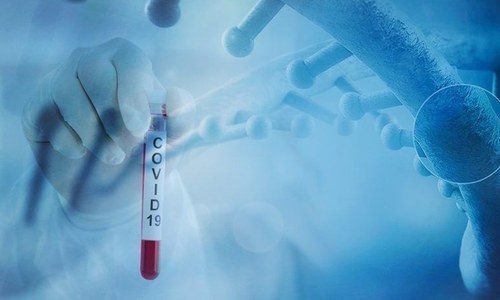DUHS scientists make breakthrough in plasma treatment of Covid-19

A team of scientists from the Dow University of Health Sciences (DUHS) on Monday claimed to have made a significant breakthrough in the treatment against Covid-19 after it prepared intravenous immunoglobulin (IVIG) with plasma obtained from recovered coronavirus patients.
Know more: Does plasma therapy treat Covid? Is it safe? Here's all you need to know about the approach
DUHS Vice Chancellor Muhammad Saeed Quraishy called it an important breakthrough in the war against Covid-19, according to a press release issued by the university.
"This way of treatment is safe, low risk and highly effective against coronavirus. Through this method, Immunoglobulin is prepared after separation of antibodies found in the blood of a recovered patient," the statement said, pointing out that this form of treatment has been approved by US Food and Drug Administration.
Calling its effort "a ray of hope in this time of crisis", the university added that the research team, led by Dr Shaukat Ali, developed this form of treatment after it was able to collect the first blood sample from an infected patient in March.
"The team managed to isolate antibodies from the blood sample chemically, purified it and later concentrated these antibodies using ultrafiltration techniques that remove the remaining unwanted materials from the final product," the statement added, explaining the technique behind the potential treatment.
The university displayed confidence in the efficacy of its treatment by arguing that the Covid-19 strain currently infecting Pakistanis only has a "few mutations" and therefore local IVIG from infected patients holds the potential to provide an extremely potent form of immunisation against Covid-19 for Pakistanis.
Last week, researchers from the university had discovered that certain variants of a human gene may offer resistance against the novel coronavirus, also known as SARS-CoV-2.
According to their findings, which were published in the Journal of Medical Virology, two variants of the ACE2 (angiotensin I converting enzyme 2) gene — that has been established as the functional receptor for the novel coronavirus — may make a person more resistant to the infection.
Read more: Human gene variants may offer resistance against Covid-19, Dow research suggests














































